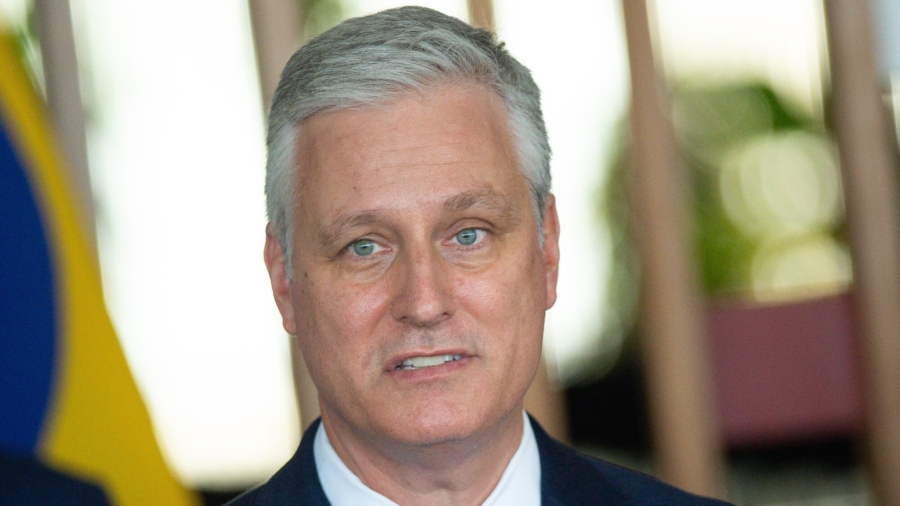HMS QUEEN ELIZABETH—President Donald Trump’s national security adviser accused China on Wednesday of trying to steal CCP (Chinese Communist Party) virus vaccine research from the West, casting it as a malign rival that was seeking to monopolize every important industry of the 21st Century.
Trump identifies China as the United States’ main competitor, and has accused the CCP of taking advantage over trade and not telling the truth over the CCP virus outbreak, which he calls the “China plague.”
In a 20-minute broadside against China, Robert O’Brien told top British and U.S. military and intelligence officials that China was a predatory power that repressed its people and had sought to coerce both neighbors and Western powers.
“The CCP is seeking dominance in all domains and sectors… (and) plans to monopolize every industry that matters to the 21st century,” O’Brien told the Atlantic Future Forum via a video link to British Navy aircraft carrier HMS Queen Elizabeth.
“Most recently the PRC used cyber-enabled espionage to target companies developing Covid vaccines and treatments in Europe, the UK and the United States all the while touting the need for international cooperation,” O’Brien said.
China’s economic and military expansion over the past 40 years is considered to be one of the most significant geopolitical concerns of recent times.
O’Brien said the West had for decades granted China concessions, including membership of the World Trade Organization, believing it would open up economically and politically, while easing its own barriers against foreign companies.
“Sadly, those are promises that to this day it has not kept,” said the 54-year-old former Los Angeles lawyer. “Instead the CCP leaders doubled down on their totalitarian approach and mercantilist, state-dominated economy.”
China in 1979 had an economy that was smaller than Italy’s, but after opening to foreign investment and introducing market reforms it has become the world’s second-largest economy.
It is now a global leader in a range of 21st Century technologies such as artificial intelligence, regenerative medicine, and conductive polymers.
China’s response to the CCP virus outbreak had, O’Brien said, “erased any lingering doubts about its intentions.”
He said China had co-opted international organizations and forced them to install Chinese telecommunications equipment in their facilities. He accused the CCP of blocking foreign companies while subsidizing its own.
He said China’s flagship international project, the so-called Belt and Road initiative, involved offering impoverished nations “unsustainable loans” to build “white elephant” infrastructure projects using Chinese firms and laborers.
“These countries’ dependence on Chinese debt leaves their sovereignty eroded and with no choice but to hew to the party’s line on UN votes and … other issues,” said O’Brien.
By Tim Hepher

